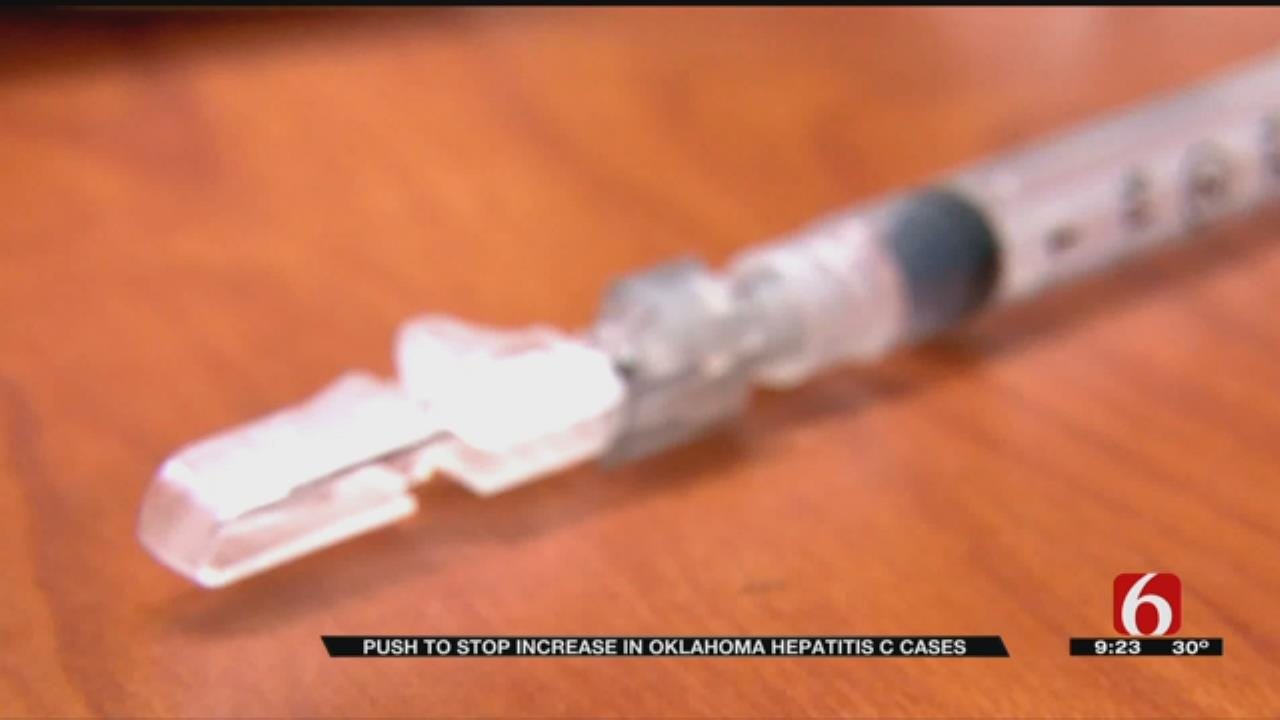Oklahoma Ranks 2nd In Nation For Hepatitis C
According to the report, Hepatitis C increased dramatically in younger Americans aged 18 to 29, by 400%. Admission for opioid injection increased by 622% for the same age group.Wednesday, January 23rd 2019, 11:31 pm
A new study shows Oklahoma ranks second in the nation in the number of cases of Hepatitis C, and the State Health Department said it's because more people are injecting opioids.
The CDC report ranked Oklahoma behind the District of Columbia for prevalence of the infection, noting a contributing factor is the sharing or re-using of needles when using injection drugs.
According to the report, Hepatitis C increased dramatically in younger Americans aged 18 to 29, by 400%. Admission for opioid injection increased by 622% for the same age group.
“The numbers are sobering, but this challenge can be tackled if the right steps are taken,” said Interim OSDH Commissioner Tom Bates. “We recognize that there is a cost to providing help, but even though it might be expensive, it’s not hopeless.”
Tulsa Cares is leading the fight, offering help to those in need. Its Hepatitis C program is the only comprehensive case management in the state.
"The clients we see come to us with a variety of challenges around poverty, homelessness, mental health issues, being food insecure,” said Kate Neary, Chief Executive Officer.
Neary said the cost for treatment ranges from $65,000 to $75,000. She said historically, treatment has been hard to access for the most common blood borne viral infection in the country, but the Tulsa Cares program links clients to the treatment for free.
"If we can get people taken care of, cured of their Hepatitis C status, that's one less person in a position to possibly pass it on to somebody else,” said Neary.
The State Health Department said there were more than 2,000 new Hepatitis C cases reported, including 254 in Tulsa County.
"I don't think that anybody would be shocked to know that Oklahoma doesn't always do the best job of taking care of underserved and marginalized communities, as far as far as accessing preventative health care and primary care,” said Neary.
With treatment, the cure rate is 90%. Neary said 80% of those infected are not receiving treatment.
"It's really important the person take the medication every single day in order for the treatment to be successful,” said Neary.
In order to receive treatment through Tulsa Cares, those infected are required to be sober for six months, maintain stable housing, and have a good support system.
"It's critically important that we help make sure they're successful because this truly may be their one shot at getting their treatment paid for."
More Like This
January 23rd, 2019
July 12th, 2025
January 2nd, 2025
Top Headlines
July 23rd, 2025
July 23rd, 2025













